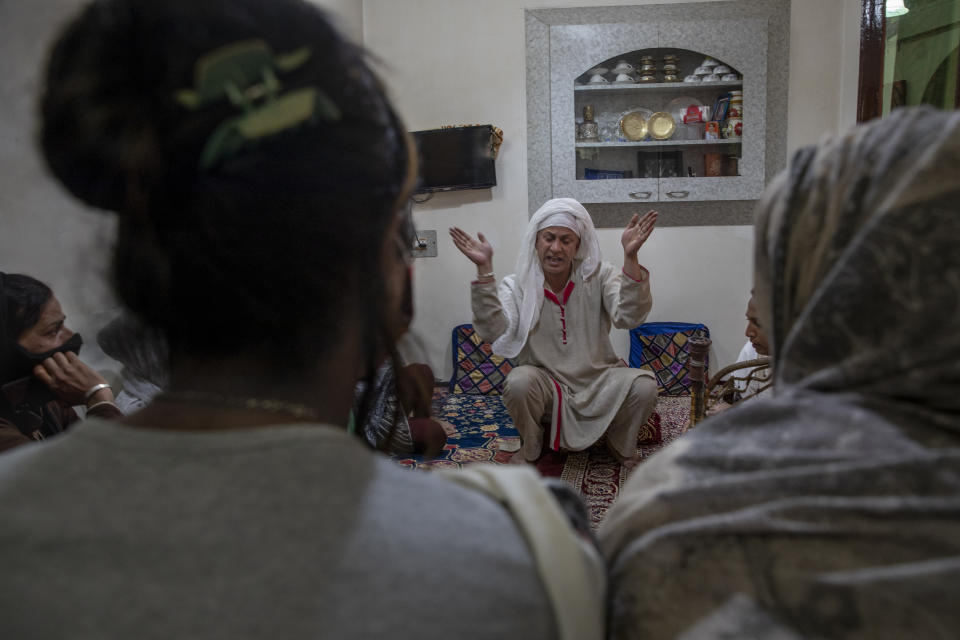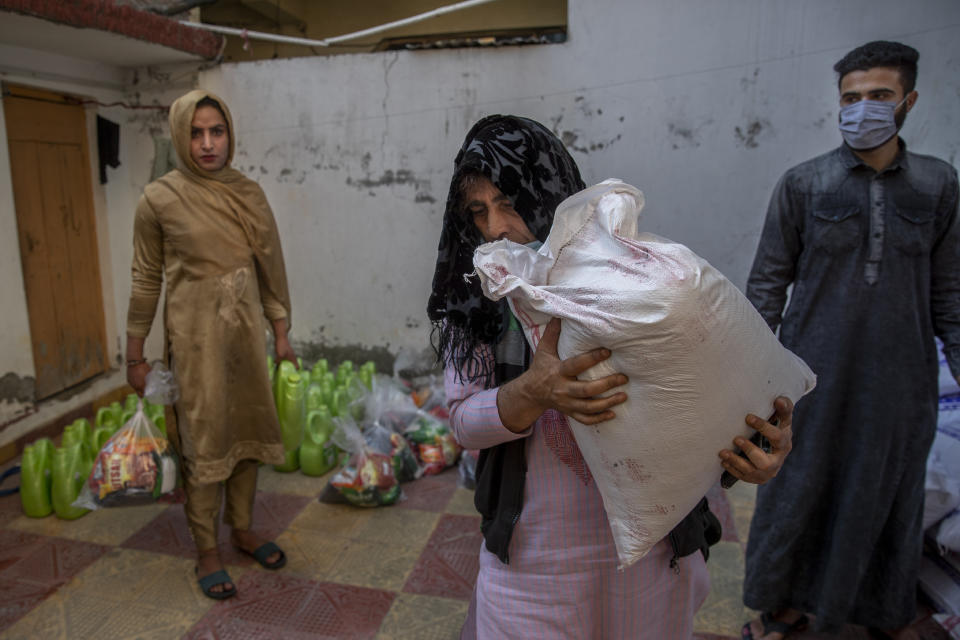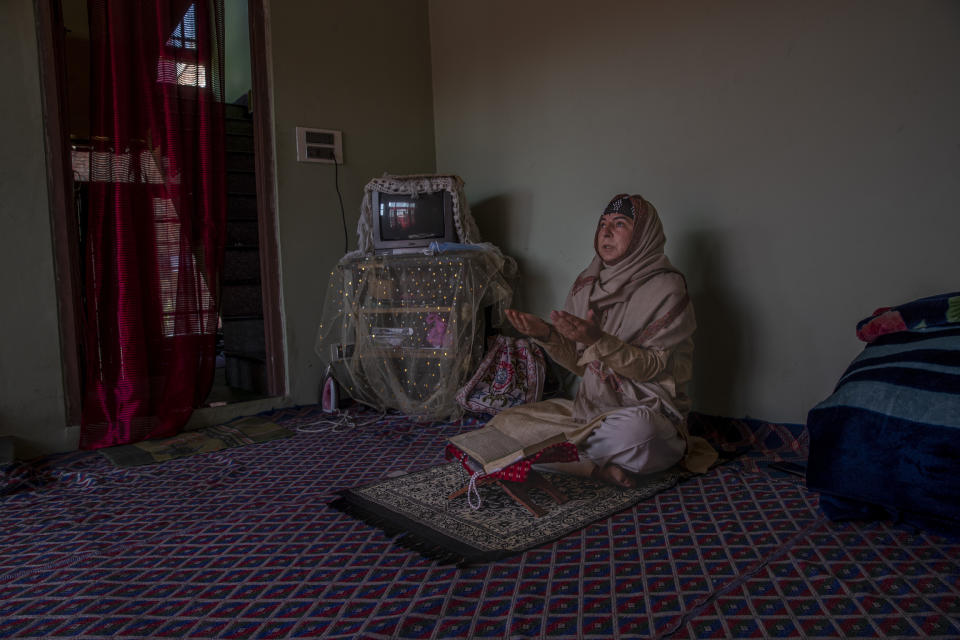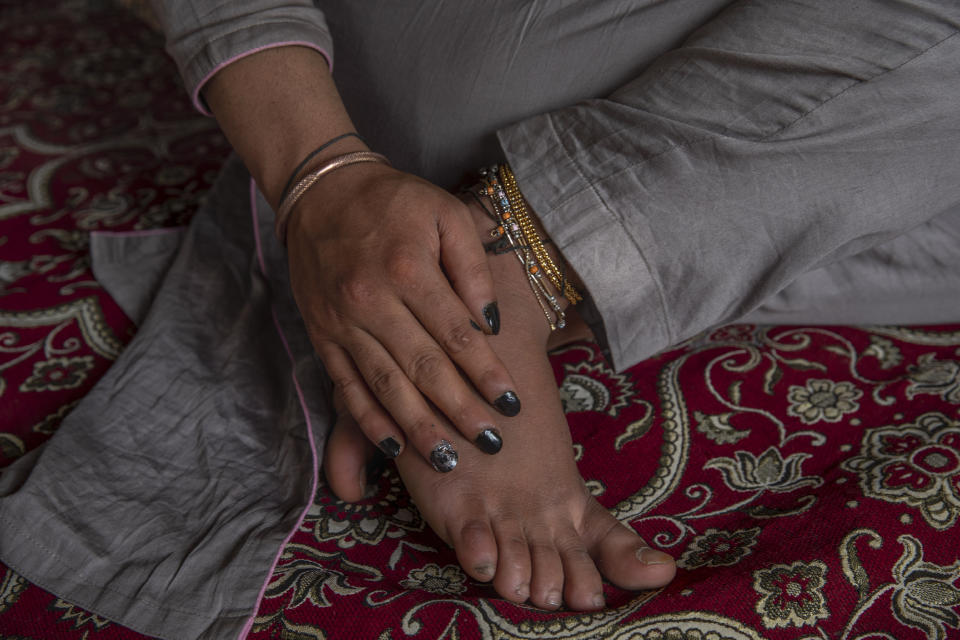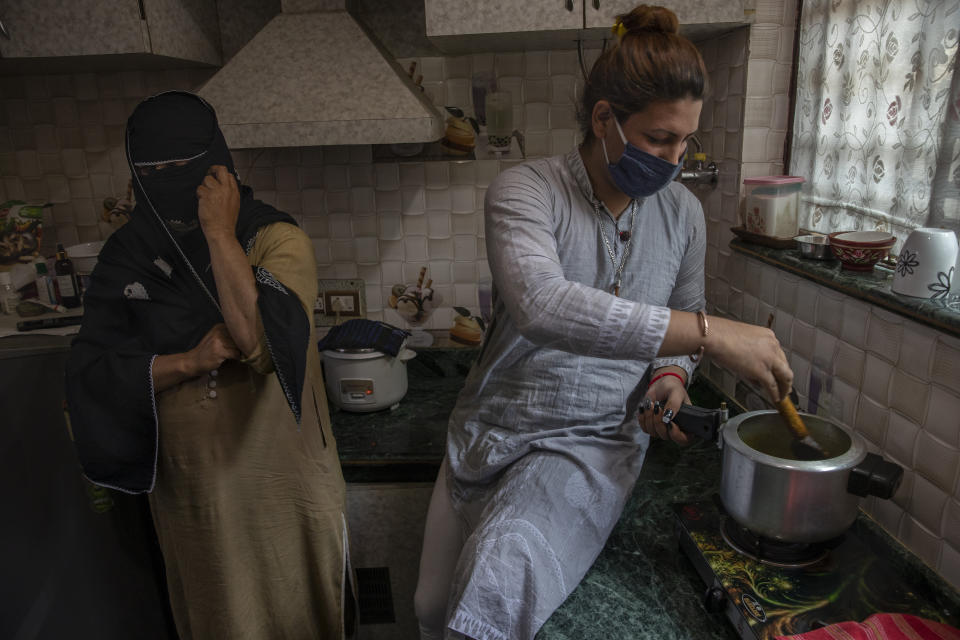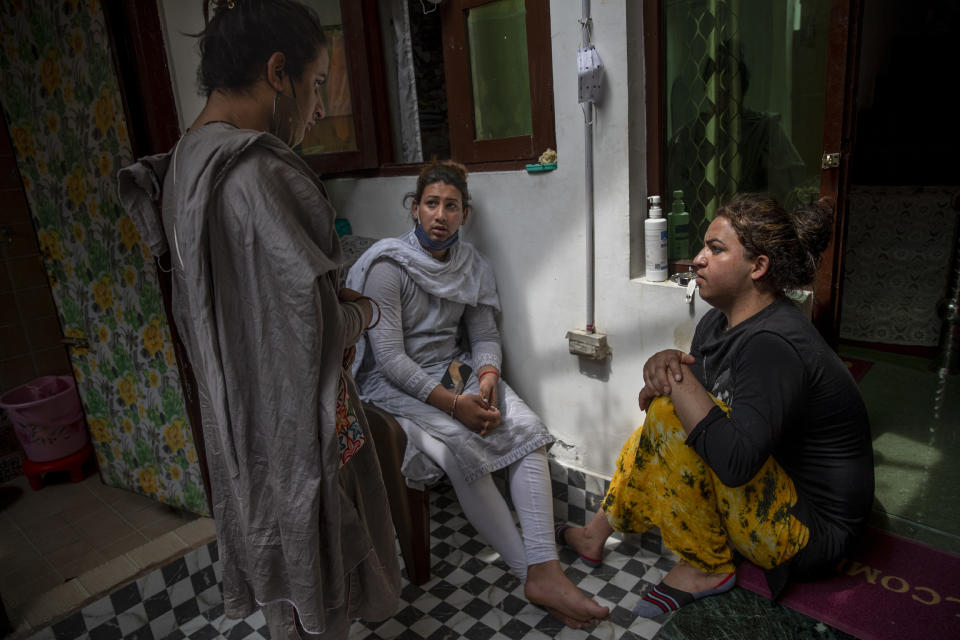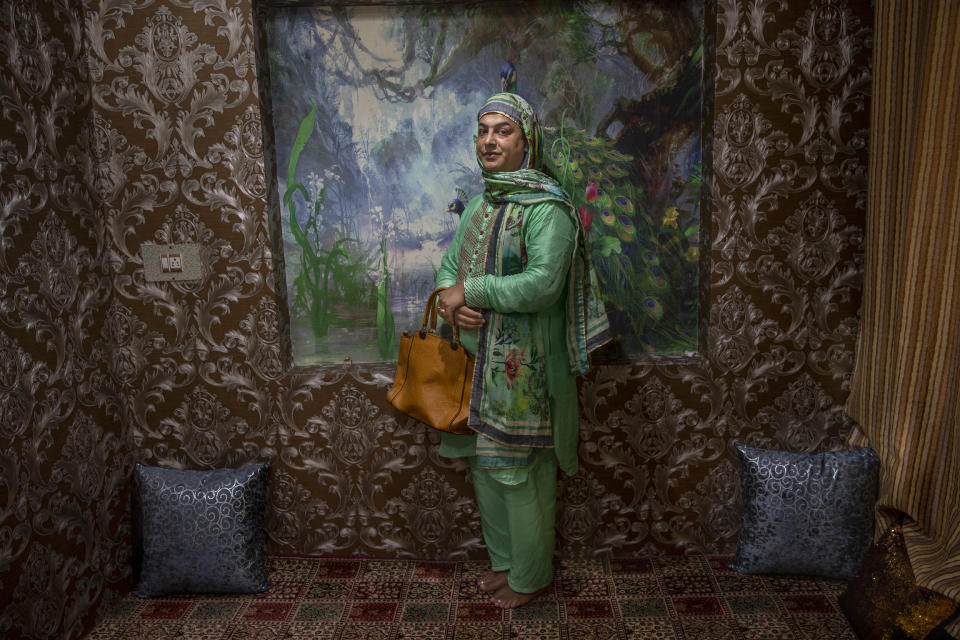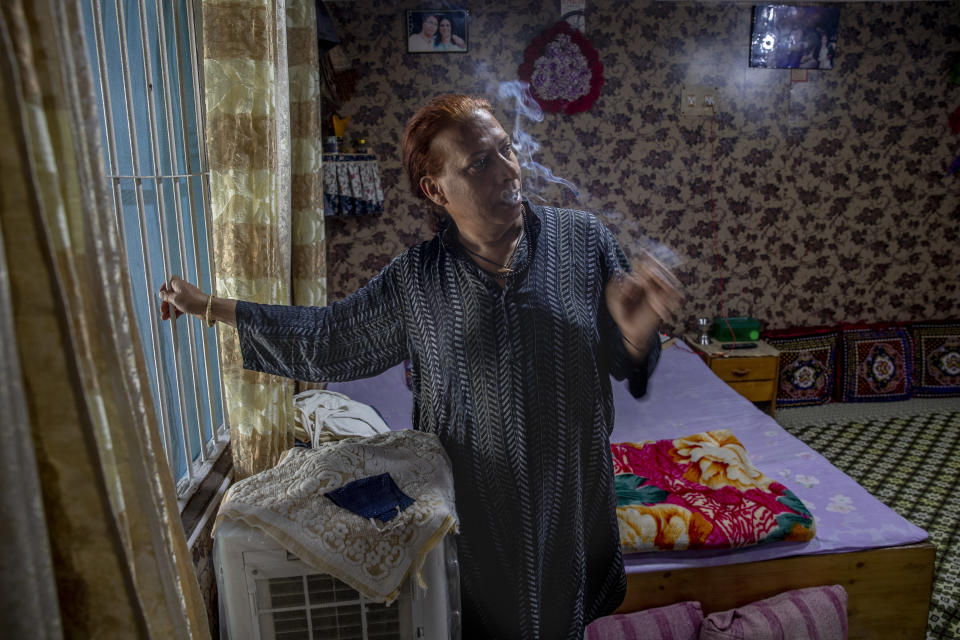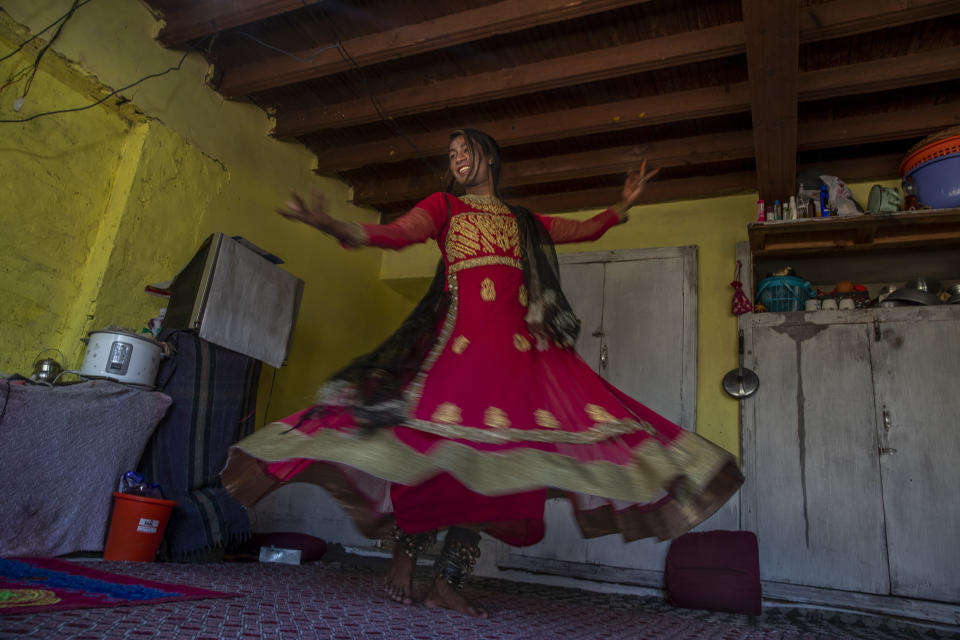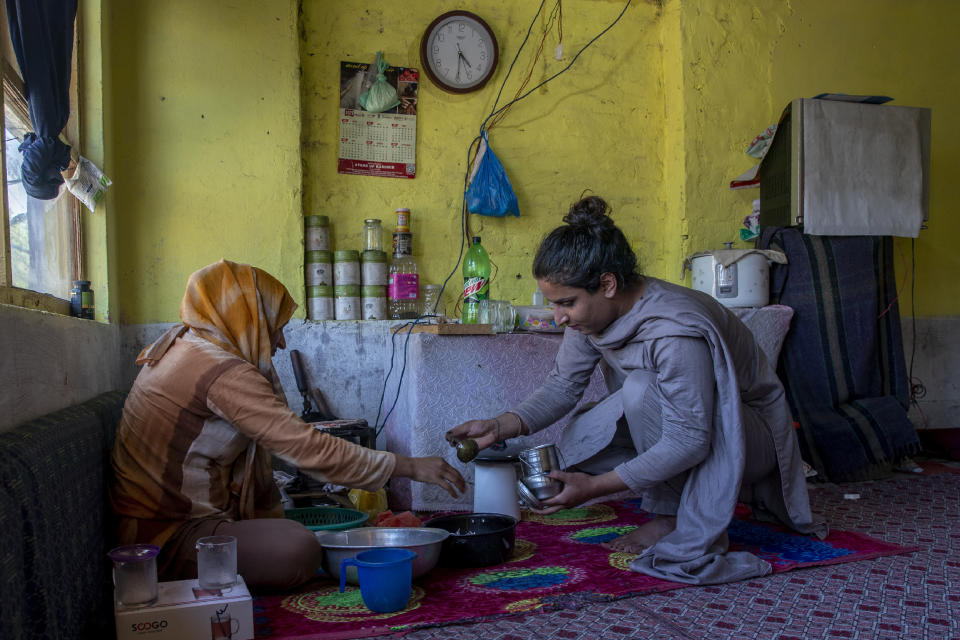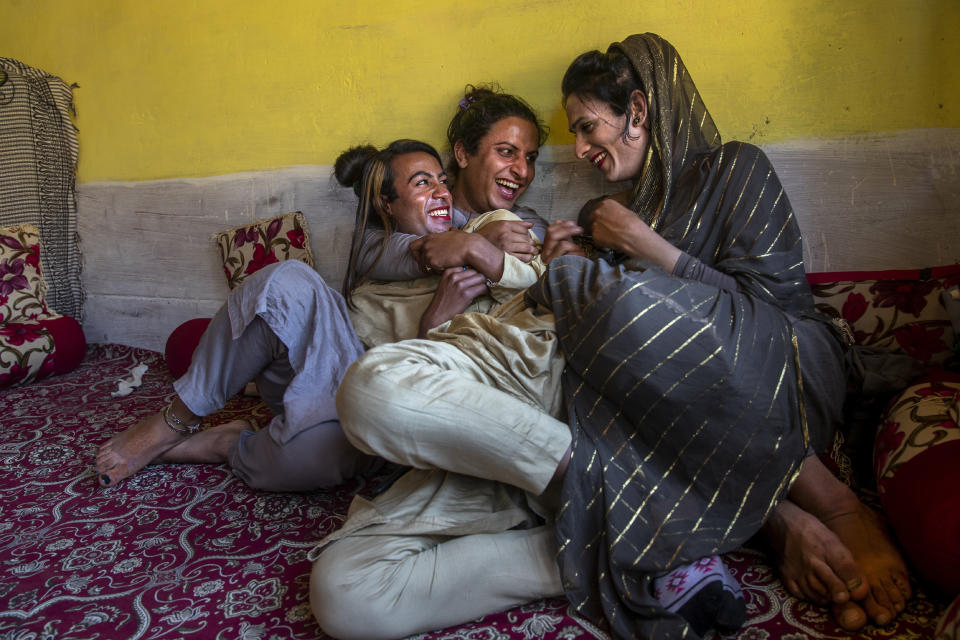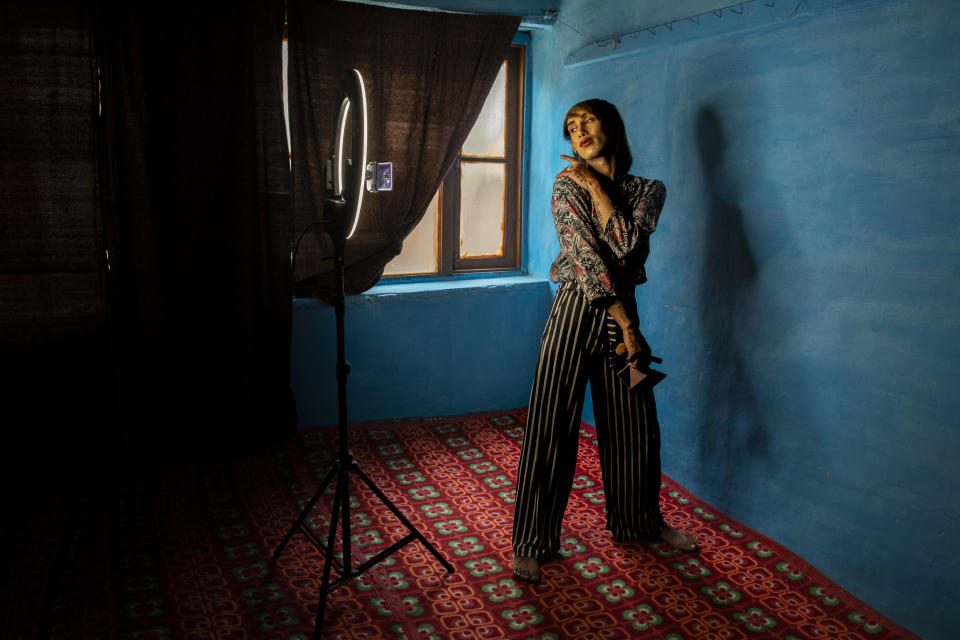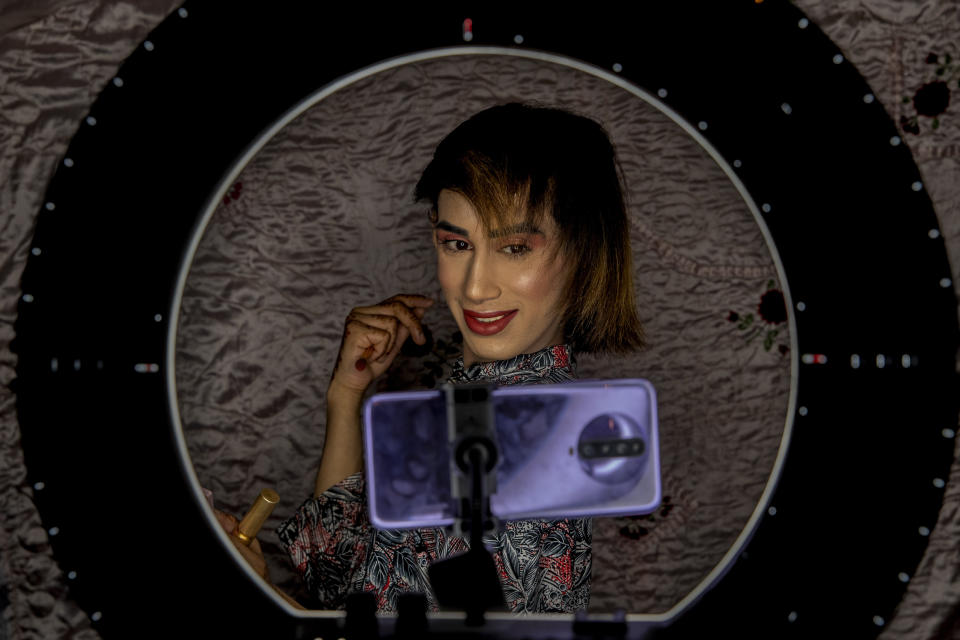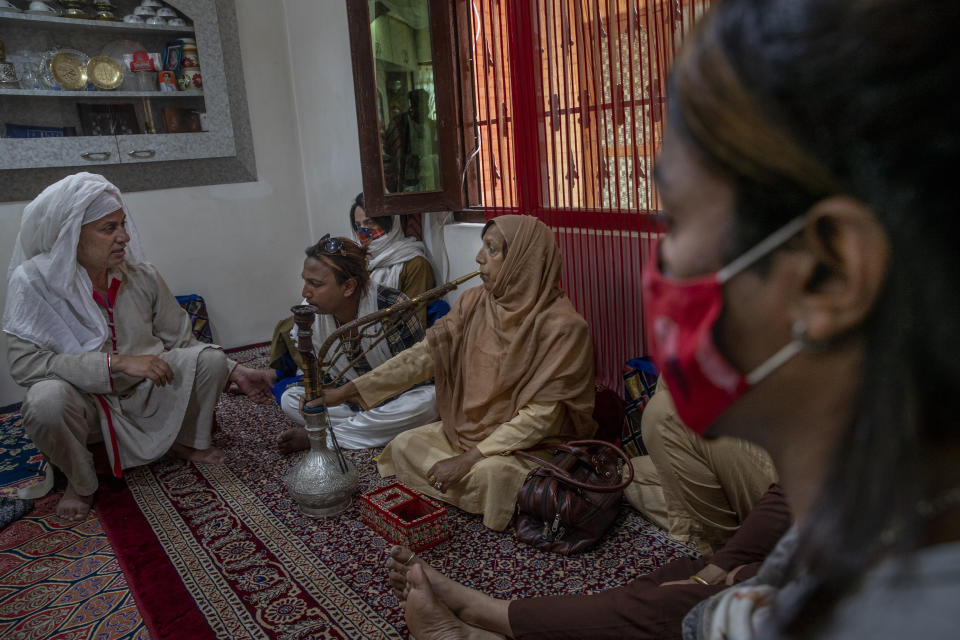AP PHOTOS: Virus left transgender Kashmiris 'on our own'
- Oops!Something went wrong.Please try again later.
SRINAGAR, India (AP) — Singing and dancing at weddings used to earn Khushi Mir enough income to take care of her family. Until the pandemic.
Lockdowns to curb the coronavirus in Indian-controlled Kashmir canceled weddings and musical evenings. Bills for Mir's rented accommodation mounted.
Unable to pay, 19-year-old Mir took a job as a construction worker for 15 days. It paid $9.60 a day but left Mir’s hands bruised and skin peeling.
“I had no other option,” Mir said. “I needed to provide for my family.”
Mir is transgender — belonging to a marginalized community in Indian-controlled Kashmir whose members are often only able to find work as matchmakers or wedding entertainment.
Prolonged coronavirus lockdowns, preceded by a strict security lockdown in the region in 2019 when India scrapped Kashmir's semi-autonomous status, left many in the transgender community with no work at all.
Left without livelihoods, some stepped up to help each other.
Mir and four others made a volunteer group to distribute food. So far, they have provided ration kits for nearly 220 people, many of them makeup artists, singers and matchmakers who have lost their livelihoods during the pandemic.
Life has not been easy for many of Kashmir's transgender people. Most are ostracized by families and bullied in society. They face domestic abuse and end up running away from families at an early age. Some lack housing, education and other basic resources.
They are a tiny minority in a region that has been fraught with violence and political instability and has known little but conflict since 1947, when British rule of the subcontinent ended and Kashmir was divided between the newly created India and Pakistan.
Living in the shadows of conflict, coupled with the recent crisis of the pandemic, pushed the community further to the margins.
“We have been ignored by everyone,” said Chandini Shaikh, a matchmaker and singer who lost her job during the pandemic. “We have been left on our own.”
